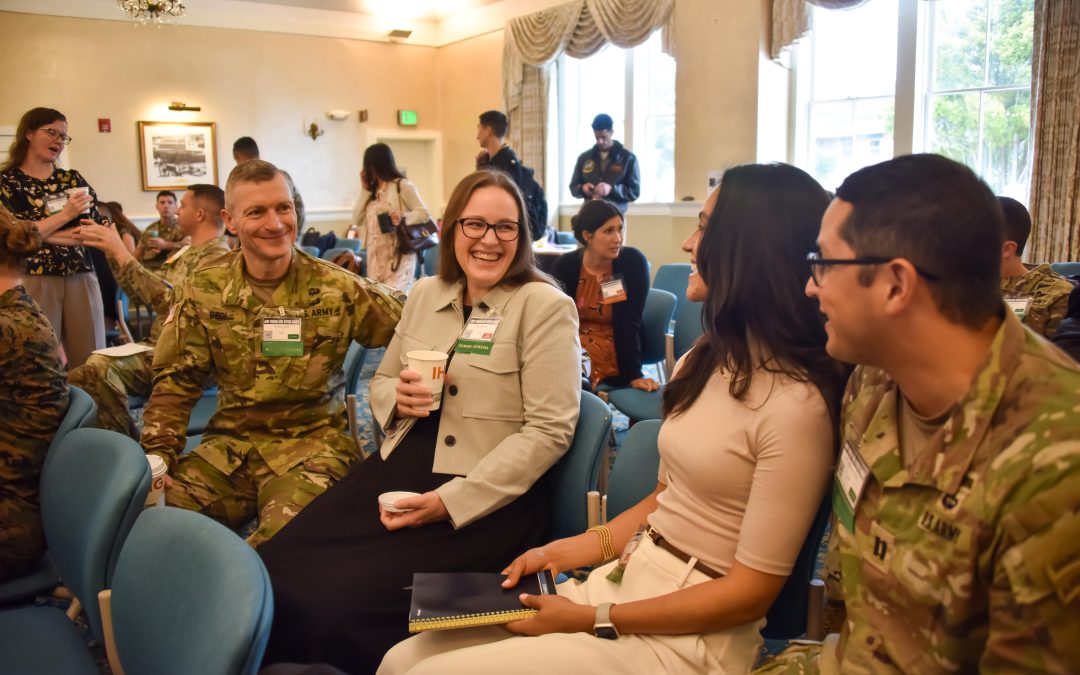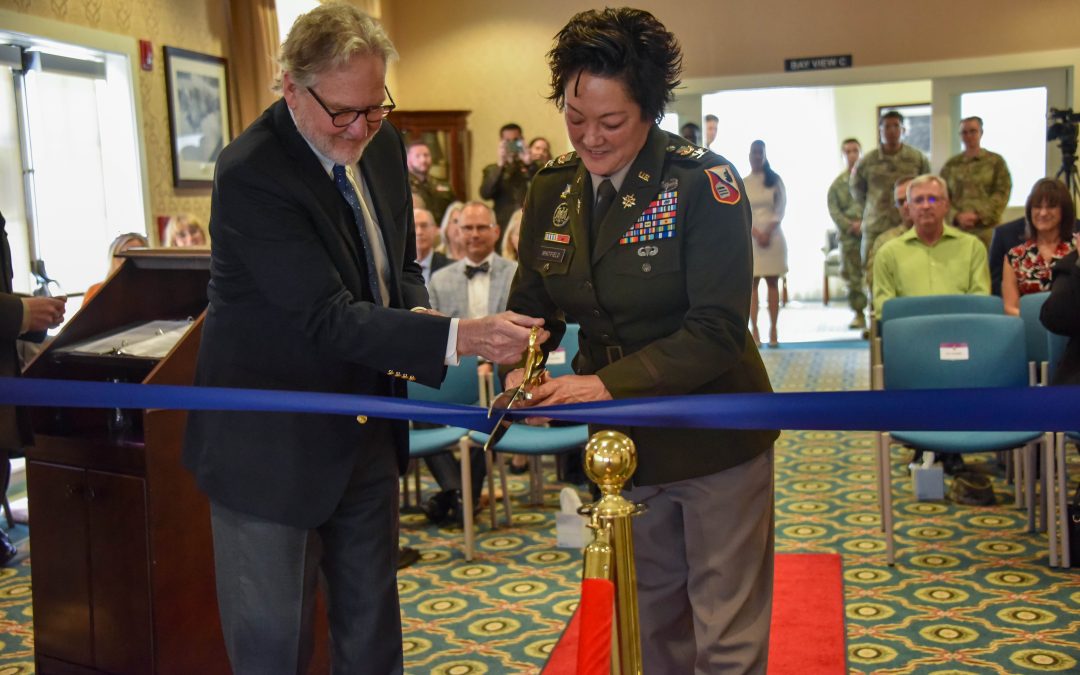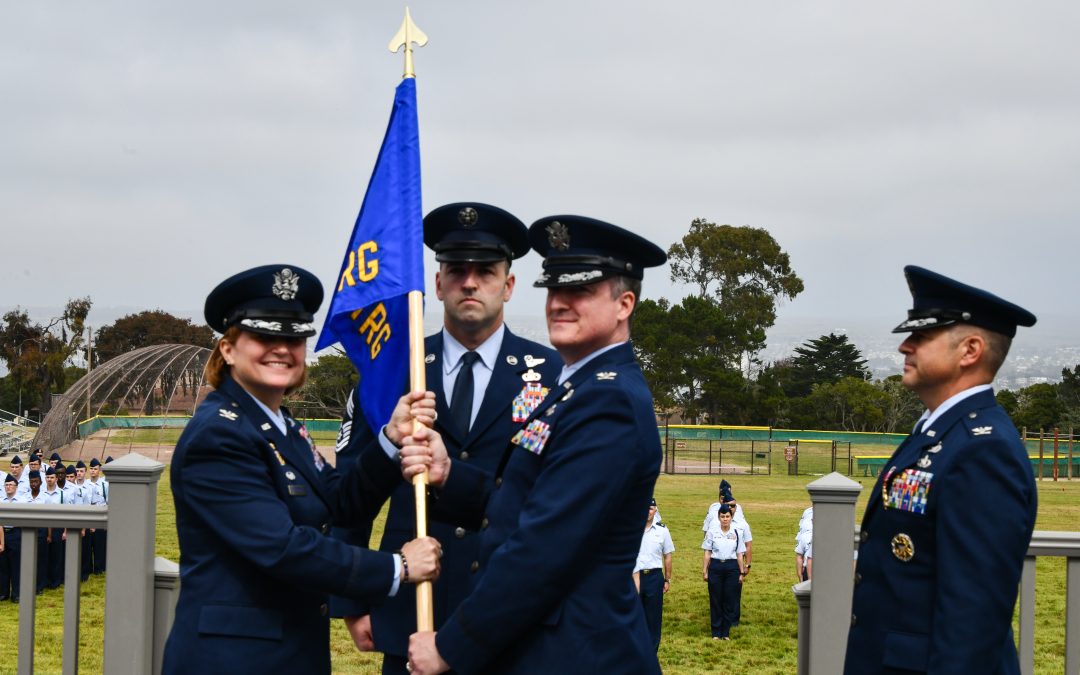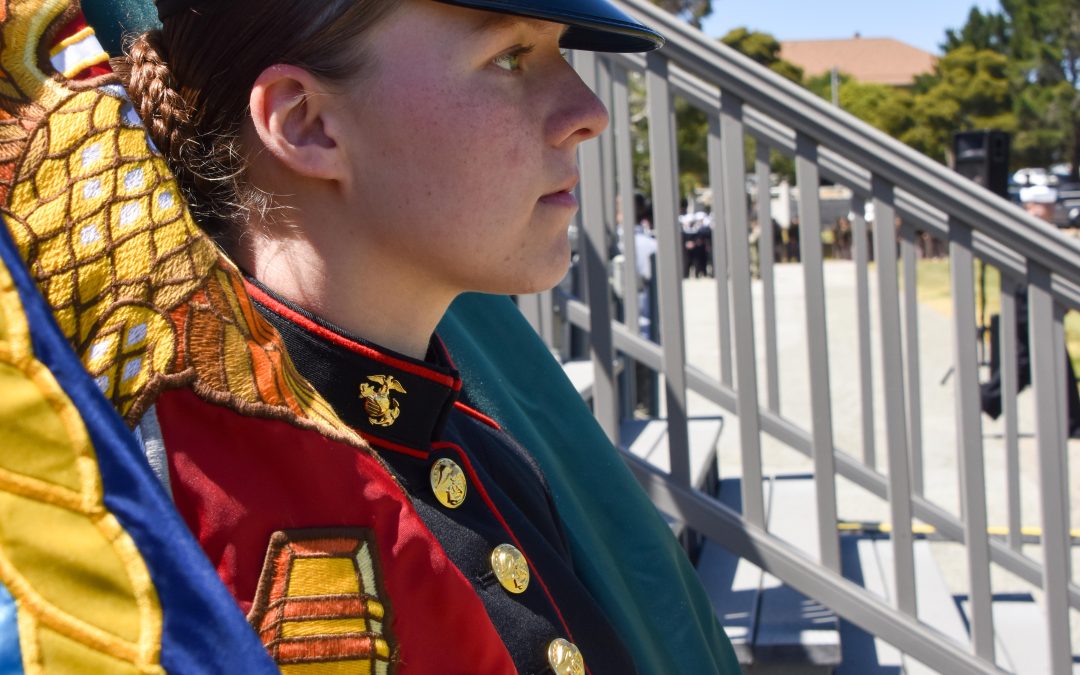By Patrick Bray
DLIFLC Public Affairs
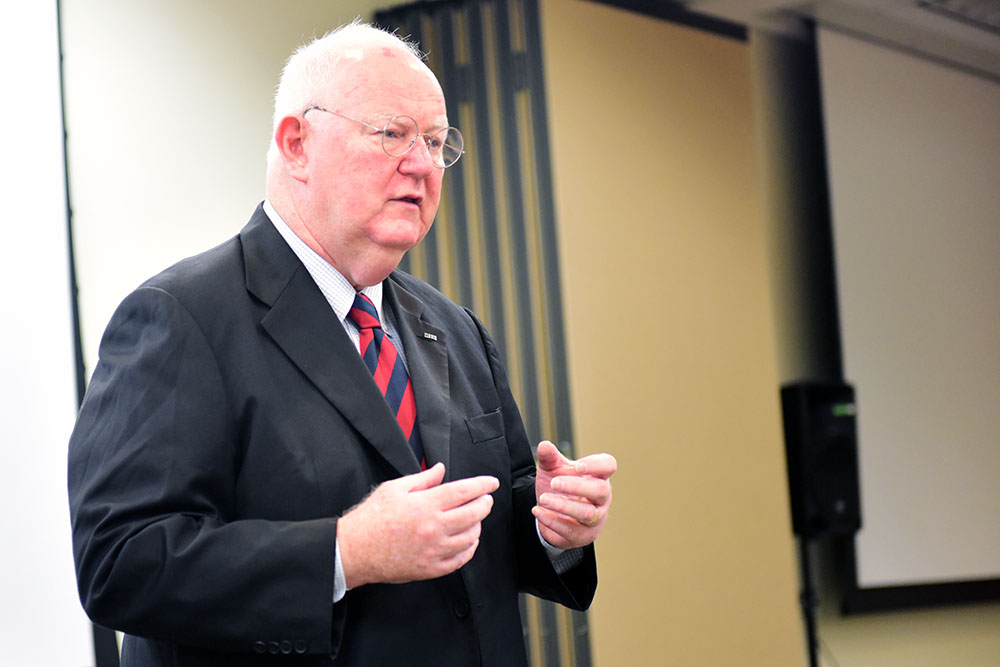
Frank Archibald, the former director of the Central Intelligence Agency National Clandestine Service from May 2013 to January 2015, spoke to faculty and staff at the Defense Language Institute Foreign Language Center Aug. 18. Archibald spoke about how language and culture has helped him throughout his national security career and offered encouragement to the teachers in getting their students to achieve higher proficiency levels. (Photo by Patrick Bray, DLIFLC Public Affairs)
MONTEREY, Calif. – Frank Archibald, the former director of the Central Intelligence Agency National Clandestine Service from May 2013 to January 2015, spoke to faculty and staff at the Defense Language Institute Foreign Language Center Aug. 18.
Archibald spoke about how language and culture has helped him throughout his national security career and offered encouragement to the teachers in getting their students to achieve higher proficiency levels.
“Individuals in relationship to the state are more powerful today than they ever were before and that is because of technology,” Archibald said, and he held out his cellphone. He talked about how people are more connected today than ever before. “Technology can be a power for good or a power for evil.”
Throughout his career Archibald’s work focused on international relations between states such as that between the Soviet Union and the U.S in the Cold War, but today individuals are becoming more powerful through the connectivity of technology. Therefore, he stressed, the importance of understanding relationships down to the individual, and with that comes the thorough understanding of language and culture.
“When I was in Zaire (Democratic Republic of the Congo), once a month I would go places in the east where they haven’t had anybody from the Embassy in decades.” said Archibald, and then, following one particular trip, “one of the linguists said to me ‘Frank, you’re always so much better in French the day you come back from your trips to the east.’”
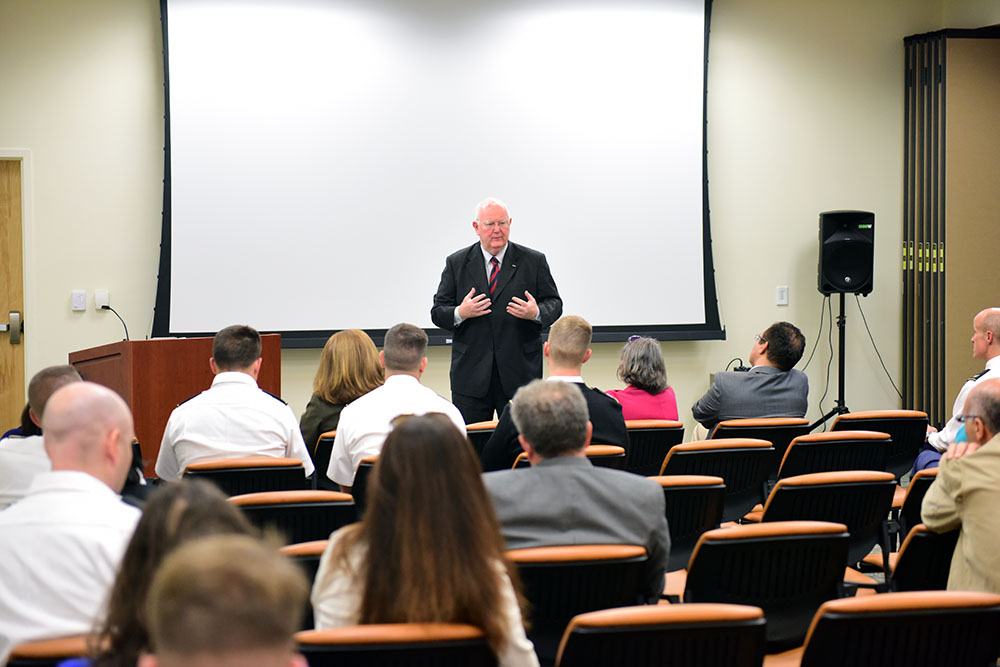
Frank Archibald, the former director of the Central Intelligence Agency National Clandestine Service from May 2013 to January 2015, spoke to faculty and staff at the Defense Language Institute Foreign Language Center Aug. 18. Archibald spoke about how language and culture has helped him throughout his national security career and offered encouragement to the teachers in getting their students to achieve higher proficiency levels. (Photo by Patrick Bray, DLIFLC Public Affairs)
These trips are how Archibald dealt with language and culture understanding in his career.
Previous to his address to the staff and faculty, DLIFLC commandant, Col. Phil Deppert, told Archibald that immersions are something instituted by DLIFLC to reach higher levels of proficiency, with plans to continue and expand the program.
Archibald already knows that “immersions are a win,” in his own words, because immersion teaches culture and language. He had previously been a CIA case officer who worked in a foreign language himself and also a case officer who worked through an interpreter.
“When speaking with someone of another culture, not only must linguists understand the foreign language but their body language and the context of what they are saying within that culture,” said Archibald. “These things often become lost through use of interpreters.”
Therefore, Archibald encouraged the faculty to motivate their students to strive for fluency, but he understands that fluency takes time and students must be committed.
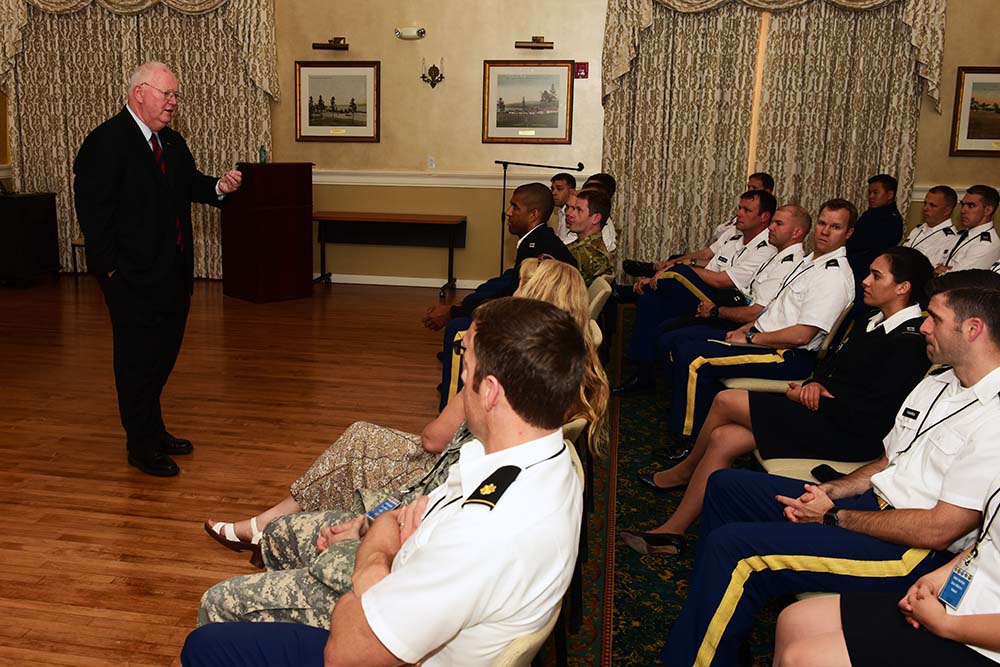
Frank Archibald, the former director of the Central Intelligence Agency National Clandestine Service from May 2013 to January 2015, spoke to faculty and staff at the Defense Language Institute Foreign Language Center Aug. 18. Archibald also spoke as part of the FAO program’s monthly officer professional development program focused on regional topics and political-military issues. (Photo by Patrick Bray, DLIFLC Public Affairs)
“Tell them it is a lifelong journey. The ability to speak a foreign language and understand someone else’s culture is a gift that they take with them throughout their life. It will broaden their life experience, but it takes commitment,” said Archibald.
Later that afternoon, Archibald spoke as part of the FAO program’s monthly officer professional development program focused on regional topics and political-military issues. The monthly program is as an essential addition to the biannual Joint Foreign Area Officer Course Phase I.
DLIFLC provides resident instruction in 23 languages at the Presidio of Monterey, California, with the capacity to instruct another 65 languages in Washington, D.C., graduating more than 220,000 linguists since 1941.
In addition, multiple language training detachments exists at sites in the U.S., Europe, Hawaii and Korea spanning all the U.S. geographic combatant commands, in support of the total force.

